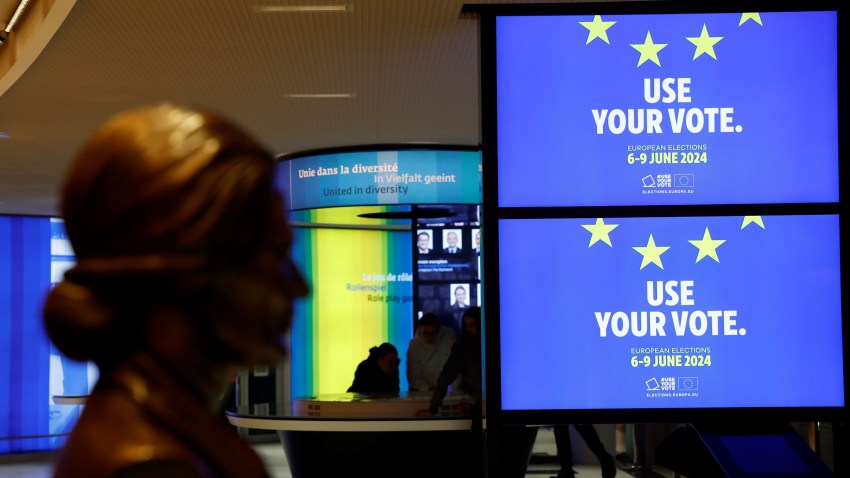Polls opened in the Netherlands today to begin four days of parliamentary elections across the European Union. The European Parliament is the only EU institution directly elected by citizens of the union’s 27 member states. (AP)
Our Take
It’s both a poignant and bitterly ironic historical coincidence that voting in EU elections is starting as world leaders from Europe and the U.S. gather in Normandy for the 80th anniversary of D-Day. It’s poignant because the European Union’s emergence, expansion and consolidation came as a direct response to World War II, representing a pan-continental effort to ensure that Europe was never the stage for such a war again.
It’s bitterly ironic in part because of the ongoing war in Ukraine, but also because the rise of far-right parties—some of which have their historical roots in WWII-era fascist parties—has come to dominate the lead up to this election.

